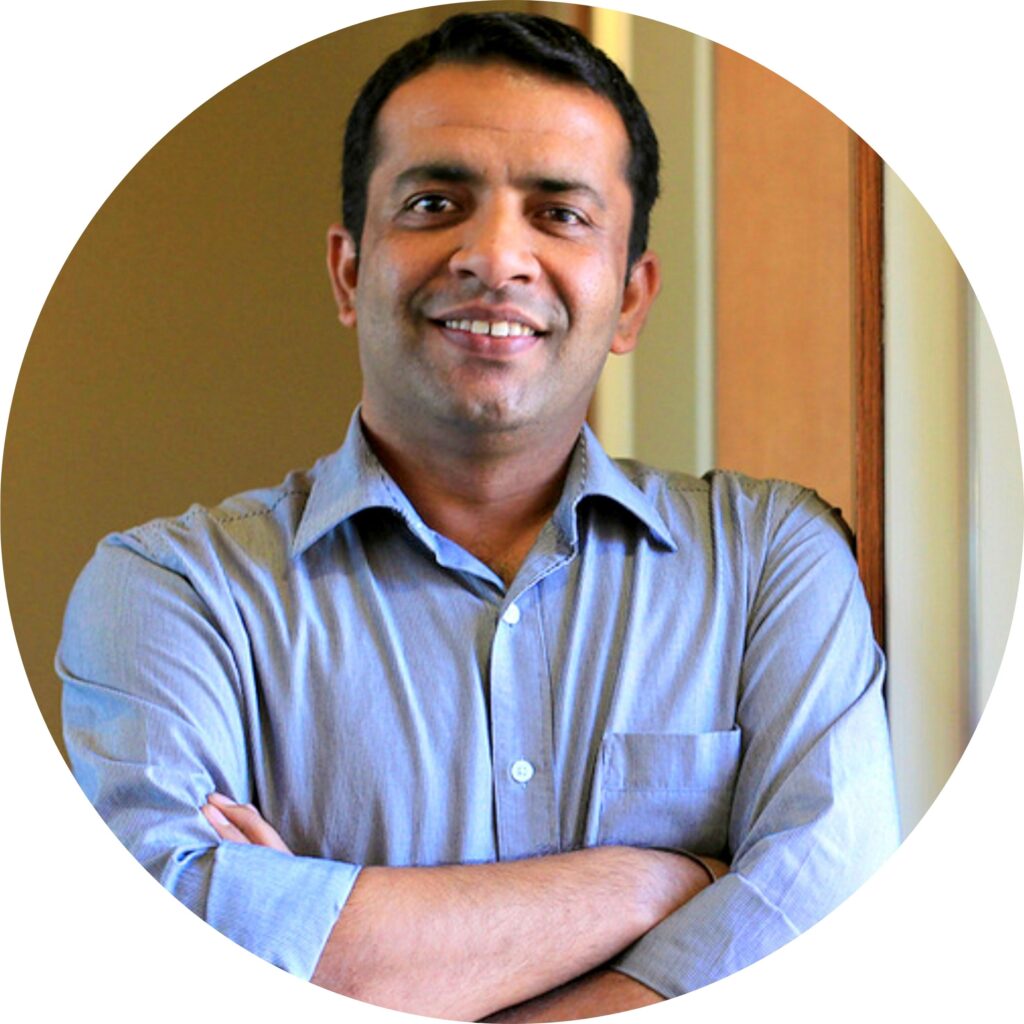“If I give time, I am a donor. But when the community is giving time, how come they are beneficiaries? Are we not all stakeholders?”
Anshu Gupta shared a powerful reflection, at an event hosted by the Wheeler Institute at London Business School and supported by the Social Impact Club, founder of Goonj challenged conventional wisdom about charity, dignity, and social change. This conversation was moderated by Sophie Levy, MBA2025, and Co-President of London Business School Social Impact Club. This event was supported by the Social Impact Club.
Goonj began with Gupta’s early experiences moving from a small town to the Delhi, where he encountered contrasts in how people lived. “For us in the small city, the sidewalk or footpath was a place to walk,” he recalled. “And then you come to the big city and realise that for millions, it’s not a place to walk—it’s home.” For years, he assumed winter deaths were caused by the cold itself, but then he realised, “If the cold kills people, even I would have died. It’s not the cold; it’s the lack of clothing.”

Through 25 years of work across India, Goonj has pioneered a model that transforms urban surplus into a currency for rural development while fundamentally reshaping the poverty and social impact narrative. This understanding of material poverty, an “acute shortage of clothing in a world absolutely full of it,” set Gupta and his wife Meenakshi on a path to establish Goonj in 1999.
Starting with the simple act of collecting unused clothing and other essentials, they quickly saw an opportunity to transform surplus materials into resources that could recognise and activate communities’ inherent capabilities to address systemic poverty. Today, Goonj has expanded beyond clothing distribution, transforming surplus material into a resource enabling communities through localised development projects.
Challenging Languages and Lenses
Throughout the discussion, Gupta repeatedly returned to the theme of language and perception. “We challenge the words donor and beneficiary,” he explained. “If I give time, I am a donor. But when the community is giving time, how come they are beneficiaries? Are we not all stakeholders?”
This reframing extends to how we view skills and knowledge. Citing examples of villagers building circular wells with rectangular bricks, Gupta questioned the common categorisation of rural workers as “unskilled.” He added, “I often ask, if people can make a circular kind of well with rectangle bricks, how do we call them unskilled?”
Community-Driven Development
Goonj’s approach empowers communities to identify and solve their own challenges. Rather than imposing solutions, the organisation provides materials as a reward for community-initiated projects. From building bamboo bridges to reviving traditional water channels, communities leverage their local wisdom and resources to address pressing needs.
Gupta noted, “When you solve one problem as a community, you’re there forever. If you make a 100-meter road, you’ll also make a 500-meter road later.” This approach shifts the traditional charity narrative from one of dependency to one of partnership. “Charity, as it’s often practiced, takes away choice and dignity.”
Not Just a Piece of Cloth
Among Goonj’s many initiatives, Gupta spoke with particular pride about its work in menstrual health, which brings affordable, reusable sanitary products to women in rural areas. For Gupta, addressing menstrual health was a necessity and a challenge to entrenched cultural stigmas. In an effort to normalise the conversation around menstruation, Goonj organises “Chuppi Todo Baithakor” or “Break the Silence” meetings where women gather to discuss hygiene openly. “We need to break that silence and recognise it as a fundamental health issue.”
Disaster Response and Climate Change
While Goonj didn’t set out to become a disaster response organisation, the increasing frequency of climate-related disasters has made it an inevitable focus. Gupta said, “Disaster is no longer a subject of a few countries, few geographies, or only particular kind of communities.” However, the organisation faces growing challenges as disaster fatigue sets in. Reflecting on the past, Gupta says, “after a disaster, our stores used to be absolutely full,” adding people don’t respond in the same way because of how common these disasters have become.

Global reach
As Goonj marks its 25th anniversary, the organisation focuses on replicating and scaling its impact. While Goonj’s work is rooted in India, Gupta believes its model has universal relevance. The principles of human dignity, community empowerment, and sustainable resource use are applicable worldwide. Gupta said, “this isn’t just about India. We each have the power to make change, but it requires empathy, courage, and a willingness to challenge norms.” In response to questions about the global relevance of Goonj’s model, Gupta explained that while logistics vary, the underlying idea—transforming “waste” into resources through community engagement—applies universally.
Looking ahead
Beyond operational growth, Gupta emphasised the importance of deeper ideological change. Goonj is working to challenge fundamental assumptions about poverty and capability. “Imagine a day when people stop considering themselves poor,” Gupta mused, highlighting the transformative potential of changing how communities view themselves. For corporate citizens and students looking to engage, Gupta emphasised the importance of starting now. “We’ve only got one life, and we don’t know until when. Let’s not wait for the loans to end, kids to get married… this field is not meant just for retired people.”
Learn more about Goonj
Goonj advocates for rethinking value in social enterprises by prioritising lives impacted over capital raised. Key initiatives include transforming old materials into resources for rural development through the Cloth for Work programme, enabling communities to build infrastructure and repurpose 5.2 million kilos of waste cloth. The School to School initiative channels unused materials from urban schools to rural areas, enhancing access to education. Not Just a Piece of Cloth addresses period poverty by providing over 7 million sanitary pads to vulnerable women. Green by Goonj upcycles excess materials into over 100 products, promoting sustainability and securing funding for future projects.
Every dollar Goonj invests returns over three times its value. With an efficiency ratio exceeding 95% for programme versus overhead costs. Goonj’s annual financial contributions of $8 million facilitate the collection, repurposing, and redistribution of over $10 million in clothing and materials. They mobilise an additional $8 million in local “human potential” to drive social progress across India.
Goonj is built on two key pillars: reciprocity and human dignity. Anshu advocates for reframing charity to recognise that giving involves receiving. Highlighting the wealth of knowledge and culture in financially poor communities. Goonj’s projects, driven by beneficiaries and rooted in local wisdom, reflect this collaborative spirit. Their commitment to human dignity, initiatives like distributing recycled clothing help individuals maintain self-respect.
The organisation’s unique business model earned it recognition as a Harvard Business School case study. Founded in 1999 with his wife Meenakshi, Goonj works on over 8,000 community development projects annually. From disaster relief, rural development, to sanitation, water, education, women’s health, poverty and livelihood.
You can find out more about Goonj here.
About the speakers

Anshu Gupta, Founder of Goonj and Gram Swabhiman, is a trailblazer in advancing systemic change by transforming India’s urban surplus into a resource for rural development and resilience building. Since 1999, Goonj—co-founded with his wife, Meenakshi—has repurposed millions of tons of surplus material, bartering it with rural communities-led action projects. His work among the most marginalised is fostering climate resilience, equity, and self-reliance. His dignity-centred model has also inspired a systemic change in India’s culture of giving and participation of the common masses in development and climate action. Anshu is a frequent international speaker at forums like TED and World Economic Forum. He is a Magsaysay awardee and an Ashoka and Schwab Fellow and advocates for a new development pathway centred on peoples’ climate-resilience led action.

Sophie Levy is an MBA student at London Business School, where she serves as Co-President of the Social Impact Club. With a strong background in strategy, sustainability, and consulting, she currently works as an Investment Associate at Sustainable Ventures, supporting eco-conscious start-ups.
About the writer

Juliana Escobar Díaz (LBS MBA 2025) is an Outreach and Communications Intern at the Wheeler Institute for Business and Development. Prior to joining London Business School, Juliana spent four years at McKinsey & Company as a Location and Business Analyst, based in Bogotá. She has a keen interest in business for impact and business as a force for good.
